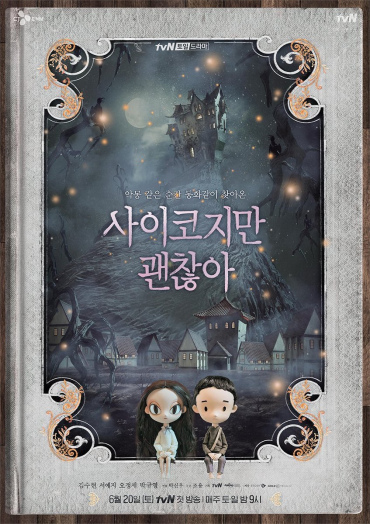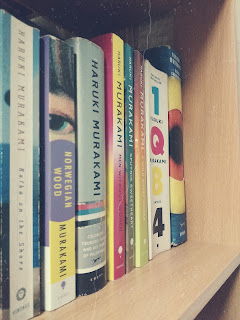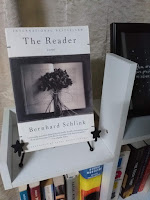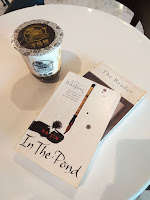Characters (Main)
Ko Munyeong - writer (writes children's books); anti-social
Moon Gang-tae - caregiver, spent most of his life looking after his older brother
Moon Sang-tae - has autism; very artistic
I'd say that this is by far the best K-drama for me, for so many reasons, some of which I might not be able to discuss here.
The series tackled several issues of human mind, and emotions that make up our life and persona as a whole.
Autism
I'd like to commend the actor who portrayed Sang-tae, Gang-tae's older brother, who was born autistic.
Gang-tae was so pure and honest and truly talented. He was an artist and he became Ko Munyeong's book illustrator.
He is limited, different, and charming in many ways. Even though he had a lot of struggles, his character development was something the viewers were so happy about. He evolved from a child trapped in an adult's body into a responsible adult. His character inspired me the most.
Mental Health Issues
This is one major reason why I like this drama so much. It gave a lot of air-time discussing some mental health issues. The audience was able to understand and empathize with the patients' situations. The series did not just focus on the 3 main characters but also on the patients of OK Psychiatric Hospital who suffered from different mental issues.
Reconciliation with a Friend
At first, there was tension between Nam Ju-ri and Ko Munyoung. They resented each other but if you get to know their friendship, you'll understand why they felt that way. They used to be friends until Ko Mun-young grew jealous because she didn't want Nam Ju-ri to be friends with others.
Between friends, confrontation is a prerequisite to reconciliation. Two must be willing to hear the other out and open one's heart.
Family Issues
The drama also had episodes where they showed different kinds of family problems - negligence, domestic violence.
A person's upbringing is a great part of who they are. The trauma that parents give their children will manifest and if the child doesn't have a strong sense of self, this trauma can damage him/ her greatly as well.
Our children did nothing wrong. We brought them into this world and it is our responsibility to support them.
Pursuit of Happiness
Does it mean be after your own welfare and not really care if other people need you as long as you can chase your dreams? Shove off the obstacles along the way? Does it mean giving up your "burdens" to get going and to get to your destination faster?
Hypocrisy/ Genuineness
How could someone be sure of his words? Do we just say things because it's the right thing to say or just because those are the words the other person needs to hear at the moment?
In this drama, "forgiveness and acceptance" was a great reverberating background. Gang-tae's decision to continue to love Ko Munyeong despite the knowledge revealed to them regarding the murder of their (brothers) mother, was easier said than done. I also asked myself if it could happen in real life. The principle behind overlooking and separating the sin and crime committed by a family member of your loved one and your stupendous love for your loved one.
which gives way to another theme...
Separation of Mother and Child
Child is not the mother. The mother is not the child.
Inspiration/ Aspiration
A single moment of happiness can inspire you to be the person you want to be.
Ko Munyeong wanted/ decided to become a writer not because her mom was a writer too but because her dad read to her once. She never forgot it and it was one happy memory of them together.
Definition of Family
Should you be blood related? Or does it mean standing by them when they need you most?
In the series, the 3 main characters had their portrait taken as a symbol of being one family.
You Belong to Yourself Alone
The series reiterated that you belong to no one else but yourself.
Parents Do not Own Their Children
Ko Munyoung's mother was obsessed with her, her own daughter, and she was so possessive of her. She made sure she grew up like her until Ko Munyeong met Gang-tae.
Another story was about a patient whose father forced her to give her kidney to him because he was ill. Children are not our investment.
Real Faces
It's easy to judge a person based on what we can only see - their behavior, their appearance but we don't really know what made them that way. It's utterly essential to be kind for we would never know, maybe that small act of kindness could save a person who's almost giving up.
If ever you're planning to watch the series and you know you easily cry, please prepare tissue every episode. This series made me cry at least 16 times!
FAMILY is a very big part of who we are. It's our foundation. If you receive the right kind of love, then that strength is something that no one can take away from you, wherever you go, whatever the situation. And if you don't have it yet, you may allow other people (may not be in your biological family tree) to teach you, show you what that is - that's how we become family with people not blood related.
I can say that this drama has the ability to open our eyes, make us contemplate life and people more, and make us understand that it's okay to feel negative emotions and to have not so pleasant or maybe unfortunate experiences in life as long as we don't give up and not dwell in them.
Loving yourself also means knowing your core values and honoring them.
P.S.
Please listen to the soundtracks.





